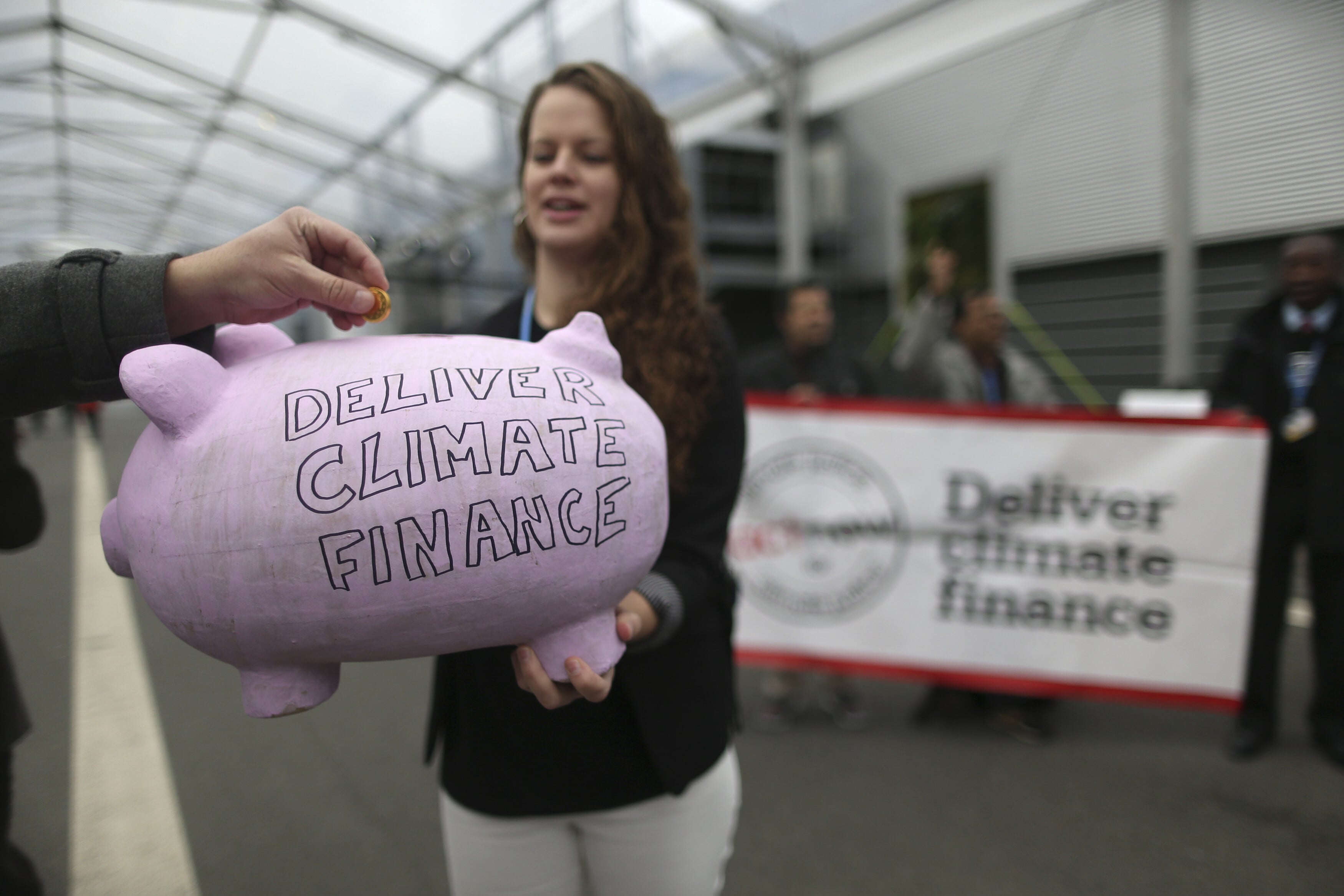China's central bank advances interest rate reform, and other economy stories to read this week

China has been progressively relaxing policies to boost economic growth.
Image: REUTERS/Jason Lee
- This weekly round-up brings you the latest stories from the world of economics and finance.
- Top economy stories: China's central bank moves to strengthen interest rate policy transmission; US economy shows resilience; ECB not ruling out more rate cuts.
1. China's central bank furthers move to market-driven credit
China's central bank is shifting its focus from the size of credit to its cost, aiming for a more market-driven interest rate system. However, the transition faces challenges from liquidity risks and uncooperative markets.
This move, while crucial for broader financial reforms, is expected to be gradual, with the People's Bank of China facing significant hurdles as it works to balance reform goals with economic stability.
"We are moving in the direction of developing market-based interest rates, but it's an arduous task and the road is long," a government adviser told Reuters anonymously.
China's factory activity likely contracted for the fourth consecutive month in August, according to a recent Reuters poll, with the official Purchasing Managers' Index (PMI) expected to rise slightly to 49.5 from 49.4 last month. A PMI below 50 indicates shrinking activity.
Despite retail sales exceeding forecasts in July, the economy continues to struggle with weak demand and sluggish recovery. Officials have pledged to boost consumer spending to help meet the annual growth target.
2. US initial jobless claims drop, but labour market slows
New US jobless claims fell slightly last week to 231,000, indicating a softening but steady labour market. Re-employment opportunities are dwindling, suggesting the unemployment rate likely stayed high in August, Reuters reports.
Despite this, the economy grew faster than expected in the second quarter, driven by strong consumer spending and a rebound in corporate profits.
The Federal Reserve is expected to start cutting interest rates next month, though a substantial reduction is less likely, analysts predict.
"The ongoing labour market slowdown and stable inflation suggest a gradual approach to rate cuts," said one chief economist.
In response to the news, stocks rose, the dollar strengthened and Treasury prices fell.
3. News in brief: Stories on the economy from around the world
Eurozone inflation is declining as expected, easing concerns about further interest rate cuts disrupting disinflation. However, European Central Bank (ECB) board member Isabel Schnabel highlighted the need for caution as rates drop. The ECB is expected to lower them again next month, as the bank's 'baseline' already includes two more cuts this year after June's reduction.
The number of female central bank governors has increased to 29 this year, up from 23 last year. However, women still lead only 16% of the 185 global central banks, according to a new report from the Official Monetary and Financial Institutions Forum.
Tokyo's core Consumer Price Index rose 2.4% in August from a year earlier, exceeding forecasts and continuing a four-month acceleration. A broader index excluding food and fuel increased 1.6%, supporting expectations of further rate hikes by the Bank of Japan.
The UK's Business and Trade Secretary Jonathan Reynolds has introduced a dual-track trade strategy, focusing on both enhancing European Union (EU) relations and expanding global partnerships. He also endorsed Britain's upcoming entry into the Comprehensive and Progressive Agreement for Trans-Pacific Partnership, suggesting the Labour government is not seeking to re-join the EU trade bloc, according to The Guardian.
French consumer price inflation eased to 2.2% year-on-year in August, down from 2.7% a year earlier, as lower petroleum and electricity costs drove the decline, INSEE data showed. The EU-harmonized inflation rate was slightly above economists' expectations of 2.1%.
How is the World Economic Forum improving the global financial system?
4. More on finance and the economy on Agenda
As US Federal Reserve Chair Jerome Powell signalled a shift towards easing monetary policy at the Jackson Hole Economic Symposium last week, this article asks: "Where are interest rates going?". Several major central banks are expected to lower interest rates soon, a move seen as crucial for boosting growth, according to the World Economic Forum’s May Chief Economists Outlook.
The global youth employment landscape has improved in recent years, but a new report reveals that 65 million young people remain unemployed. The gap between attained qualifications and the skills demanded by today's job market is a key factor in their ongoing struggle to find work. Here are five charts that show the current state of global youth employment – and where it needs to be.
The Japanese stock market plunged in early August, impacting the global economy. Experts attribute the collapse partly to carry trades, where borrowing in low-interest currencies to invest in higher-yield assets played a significant role. Learn more in this explainer.
Accept our marketing cookies to access this content.
These cookies are currently disabled in your browser.
More on Financial and Monetary SystemsSee all
Pranidhi Sawhney and Adam Skali
July 29, 2025
David Carlin and Sourajit Aiyer
July 28, 2025
Veronica Frisancho
July 22, 2025
Jesus Serrano
July 14, 2025
Rebecca Geldard
July 10, 2025





